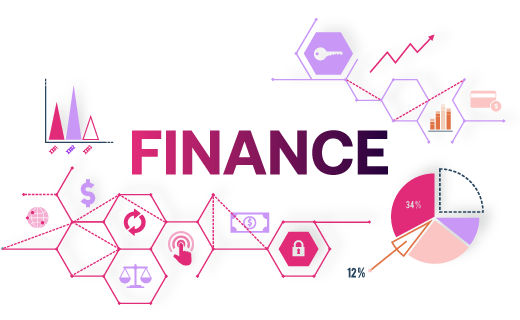A SWOT Analysis of Fintech in Vietnam: Unlocking Opportunities for Global Investment and Partnerships
Vietnam, with its rapidly growing economy and tech-savvy population, has emerged as a hotbed for financial technology (fintech) innovation in Southeast Asia. Fintech solutions have gained significant traction in Vietnam, revolutionizing the way financial services are delivered and consumed. In this blog, we will conduct a SWOT (Strengths, Weaknesses, Opportunities, and Threats) analysis of the fintech landscape in Vietnam, providing valuable insights for clients in other countries seeking to invest in or partner with fintech companies in this flourishing market.
1. Strengths of Fintech Vietnam
A. Strong Economic Growth and Rising Digital Adoption
Vietnam has been experiencing robust economic growth, with a GDP growth rate averaging around 6-7% in recent years. This growth is fueling rising incomes, an expanding middle class, and increased consumer spending, creating a fertile ground for fintech companies to thrive. Furthermore, Vietnam has witnessed a rapid increase in digital adoption, with a significant portion of the population embracing smartphones and internet connectivity. This digital-savvy population provides a vast user base for fintech services.
B. Supportive Regulatory Environment
Vietnam's government recognizes the importance of fintech in driving economic development and has implemented several supportive policies and regulations. The State Bank of Vietnam (SBV) has established a regulatory sandbox to encourage experimentation and innovation in fintech, enabling companies to test their products and services in a controlled environment. Additionally, the SBV has issued guidelines to promote cashless transactions and electronic payments, laying the groundwork for fintech companies to flourish.
C. Robust Mobile Payment Ecosystem
Vietnam has experienced a rapid transition from cash-based transactions to digital payments. The country boasts a strong mobile payment ecosystem, with dominant players like MoMo, ZaloPay, and ViettelMoney capturing a significant market share. These mobile payment platforms have gained widespread acceptance and popularity, offering convenience, speed, and security to consumers. The success of mobile payments in Vietnam presents immense opportunities for fintech companies to provide complementary services such as digital lending, insurance, and wealth management.

2. Weaknesses of Fintech in Vietnam
A. Limited Access to Capital
Access to capital remains a challenge for fintech startups in Vietnam. Despite the government's efforts to promote fintech innovation, many startups face difficulties in raising funds due to limited venture capital availability and risk-averse investor attitudes. The funding gap hampers the growth potential of promising fintech ventures and necessitates collaboration with international investors and financial institutions to bridge the capital divide.
B. Fragmented Market Landscape
The fintech market in Vietnam is highly fragmented, with a multitude of players operating across different segments. This fragmentation poses challenges in terms of market competition and customer acquisition. Moreover, the lack of standardized APIs and interoperability among fintech solutions can impede seamless integration and hinder the scalability of innovative products and services.

3. Opportunities of Fintech Vietnam
A. Untapped Market Potential
Vietnam's fintech market is still in its nascent stage, presenting abundant opportunities for growth and market penetration. With a population of nearly 100 million, a significant proportion of which remains unbanked or underbanked, there is a substantial untapped market for fintech solutions. By leveraging technology and innovation, fintech companies can provide financial services to previously underserved segments, including rural areas and low-income individuals.
B. Rising Demand for Digital Banking and Insurance
As Vietnamese consumers embrace digital lifestyles, there is a growing demand for digital banking and insurance solutions. Traditional banks and insurers often face limitations in reaching remote areas, while fintech companies can offer convenient and accessible services through mobile applications. By leveraging this demand and providing innovative solutions tailored to Vietnamese preferences, fintech companies can capture a significant portion of the market share in digital banking and insurance.
C. Fintech Collaboration with Traditional Financial Institutions
Collaboration between fintech startups and traditional financial institutions presents a win-win opportunity. Established banks and financial institutions in Vietnam recognize the need to embrace digital transformation and are increasingly open to partnerships with fintech companies. Such collaborations can leverage the strengths of both parties, combining the established customer base and regulatory compliance of traditional institutions with the agility and innovation of fintech startups. These partnerships can unlock new revenue streams, enhance customer experience, and drive industry-wide innovation.

4. Threats of Fintech Vietnam
A. Cybersecurity Risks
As fintech services gain traction and financial transactions become increasingly digital, the risk of cybersecurity threats and data breaches becomes more prominent. Cybercriminals are constantly evolving their techniques, targeting both fintech companies and consumers. The security vulnerabilities inherent in digital transactions pose a significant threat to the fintech ecosystem in Vietnam. Fintech companies must prioritize robust security measures and adhere to best practices to safeguard user data and build trust among consumers.
B. Regulatory Challenges and Compliance
While Vietnam's regulatory environment has been generally supportive of fintech, compliance with evolving regulations remains a challenge. Fintech companies need to navigate a complex web of regulations and licensing requirements to ensure compliance and avoid potential penalties. Additionally, as the fintech industry grows, regulators may introduce new regulations to address emerging risks, requiring companies to adapt quickly and ensure ongoing compliance.

Final Thoughts:
Vietnam's fintech landscape presents a compelling investment and partnership opportunity for clients in other countries. The strengths of strong economic growth, rising digital adoption, and a supportive regulatory environment create a favorable environment for fintech companies to flourish. However, challenges such as limited access to capital, market fragmentation, and cybersecurity risks must be carefully addressed.
As clients explore investment or partnership opportunities in Vietnam's fintech sector, it is crucial to conduct thorough due diligence, engage with local industry experts, and stay abreast of the evolving regulatory landscape. By embracing the fintech revolution in Vietnam, clients can not only tap into a lucrative market but also contribute to the digital transformation and financial inclusion efforts in this dynamic and promising economy.
If you are looking for a trusted IT partner, VNEXT Global is the ideal choice. With 14+ years of experience, we surely can help you to optimize your business digitalization within a small budget and short time. Currently, we have 400+ IT consultants and developers in Mobile App, Web App, System Development, Blockchain Development and Testing Services. We have provided solutions to 600+ projects in several industries for clients worldwide. We are willing to become a companion on your way to success. Please tell us when is convenient for you to have an online meeting to discuss this further. Have a nice day!












